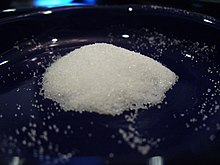Peter Pharoah
Peter Oswald Derrick Pharoah (May 1934 – 23 October 2021) was a British public health professor at the University of Liverpool from 1979 until 1997. He was known for his work on people with cretinism (as the condition was then known) in Papua New Guinea and cerebral palsy in the United Kingdom.
Early life
[edit]Peter Oswald Derrick Pharoah was born in Ranchi, in the Indian state of Jharkhand, in May 1934.[1][2][3] He went to school in Lovedale and Sanawar.[2][4]
In 1948, after his father died, he and his mother moved back to Britain. He studied at Palmer's School in Grays, Essex, before studying at St Mary's Hospital Medical School at Imperial College London, where he met his wife and worked in a team with Sir Roger Bannister, an athlete and neurologist.[2][4]
Medical work
[edit]
He married in 1960, moving three years later to Papua New Guinea to become a medical officer in Rabaul and the district medical officer in Mount Hagen, Wewak and Goroka.[4] When working with villagers in the Jimi Valley, Pharoah ran a clinical trial whereby he injected iodised oil into women who were of child-bearing age and found out that cretinism (as congenital iodine deficiency syndrome was known at the time) was caused by iodine deficiency during pregnancy; this led to iodised salt being the only salt imported and thus the disease was eradicated.[2][4]
In 1972, he moved back to the UK and became a lecturer at the London School of Hygiene and Tropical Medicine before becoming a professor of public health at the University of Liverpool in 1979. He worked on a number of cases regarding the life expectancy for children with cerebral palsy, including in many legal cases.[4] His later research focused on health conditions that affected young children, such as heart defects and low birth weight,[5] as well as the health concerns of newborns who had a vanishing twin.[6]
He was an editor-in-chief of the International Journal of Epidemiology (1991–2000).[7]
Death
[edit]Pharoah, who had dementia later in life, died on 23 October 2021.[5]
References
[edit]- ^ Sheard, Sally (1 November 2021). "Obituary: Emeritus Professor Peter Pharoah". University of Liverpool News. University of Liverpool. Retrieved 21 December 2021.
- ^ a b c d Wallersteiner, Rebecca (3 December 2021). "Peter Pharoah: public health professor whose research eradicated iodine deficiency related cretinism in Papua New Guinea". The BMJ. 375: n2998. doi:10.1136/bmj.n2998. ISSN 1756-1833. S2CID 244842000.
- ^ "Peter Oswald Derrick PHAROAH personal appointments - Find and update company information - GOV.UK". find-and-update.company-information.service.gov.uk.
- ^ a b c d e Pharoah, Paul (8 November 2021). "Peter Pharoah obituary". The Guardian.
- ^ a b Robitzski, Dan (11 November 2021). "Public Health Pioneer Peter Pharoah Dies at 87". The Scientist.
- ^ Revill, Jo (22 April 1999). "Brain damage in babies linked to 'death of a twin'". Evening Standard. p. 18.
- ^ Leeder, Stephen (1 June 2017). "Changing the editorial crew at the IJE". International Journal of Epidemiology. 46 (3): 773–774. doi:10.1093/ije/dyx135. ISSN 0300-5771. PMID 29020738.
